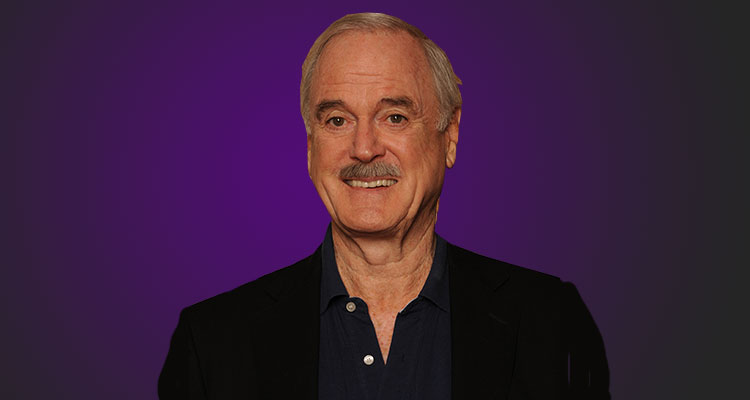John Cleese may be best known for his work as Basil Fawlty in “Fawlty Towers,” for his many personas in “Monty Python,” or for his role in the movie “A Fish Called Wanda,” but he has a strong business pedigree as well. As the cofounder of Video Arts, the world’s largest provider of business training programs at the time, Cleese attributes his business success to his fascination with psychology and his love for teaching and making people laugh.
On Friday, February 12, Cleese will speak at the University of St. Thomas School of Law on creativity in business, and how having fun can lead to success at work. All tickets have been claimed for this speech, which is part of the Schulze Entrepreneurs Series, but the Schulze School had the opportunity to do a question & answer session with Cleese prior to the event.
What can business people learn from artists, specifically comedians?
Business people need to understand the need for control must not dominate their thinking and behavior all the time. Massage therapists have told me for decades that business people are the hardest to massage because they’re so tense as a result of their attitude of always trying to be in control. Artists, they tell me, are the easiest to massage because they know how to “let go” and to allow deeper processes to happen, without compulsively trying to control them.
What role should humor play in the workplace, and what outcomes can it lead to?
I believe people are most creative and productive when they are relaxed and spontaneous. Where there is spontaneity, there will always be humor. The problem is, self-important people are always threatened by humor. They mistrust it because unconsciously they know that humor threatens pomposity. So they dislike any sign of humor, and therefore spontaneity. This is why Henry Ford once fired an employee at his riveter plant for laughing. He had already been warned for smiling. Of course there are times when a sense of humor is irrelevant. For example, if you’re trying to save someone’s life.
Do you find creativity flows better in a quiet setting, or while active? In a group, or alone?
If you’re alone, interruptions are the enemy. If you’re in a group, and you’re brainstorming, the whole point is to interact with the others as spontaneously as possible. The important thing is to really listen. Critical comments should be avoided, and asking questions should be encouraged.
What is the biggest barrier to creativity in the workplace, and how can firms overcome it?
The biggest barrier to creativity is a boss who does not understand the need for a creative environment, nor how it can be achieved.
How is your research on psychology and creativity different from others?
The people who study creativity are much more intelligent than I am, but they’re not creative. Therefore, they observe it from the outside. I observe it from the inside, and so I know what it feels like. This is a simpler approach.
You’ve done a lot of great, noteworthy things. What’s your proudest accomplishment?
The realization that very few things matter and that most things don’t matter at all.
What’s the largest mistake you ever made and how did you overcome it?
My largest mistake was marrying my third wife, and I have not yet overcome it.
What is something you know now that you wish you knew in your early 20s?
I wish I had known that very, very few people know what they’re talking about, and that you have to rely on yourself to ferret out all your own answers.
Who are your life mentors?
There was an intellectual, Tony Jay, whom I met through David Frost. He had a very original take on business thinking. The next was a psychiatrist called Robin Skynner. After being his patient I became his friend. He understood people better than anyone I met so I helped him to write two books. It was an emotional education.
What led you from a career in comedy and business to being actively involved in higher education?
When I was 15, I was drawn towards psychology, but my attempts to get into the field were distempered by bad teaching. So I went in a different direction, but was eventually drawn back into the realm of psychology by many forces, some of them hidden.
What was your favorite Bond gadget invented as Q?
Ballpoint pen that turned out to be a nuclear submarine.
What is your fascination with lemurs?
They’re the nicest creatures on earth. They wage war by wafting smells at each other. I wish we could learn from them. However we share one action with lemurs: their females are always in charge.







